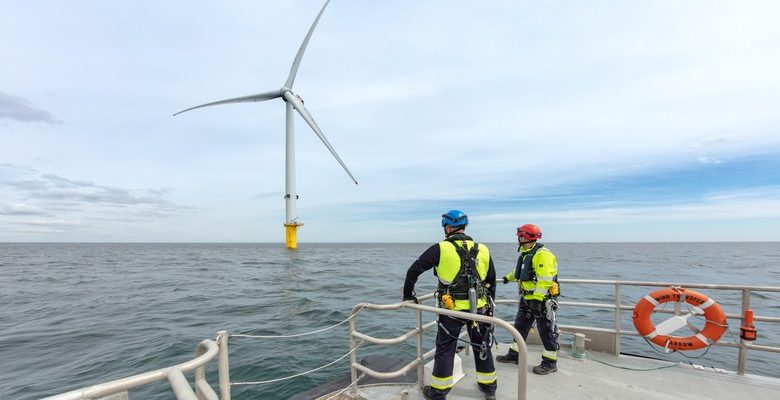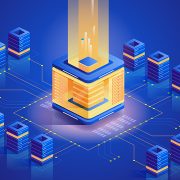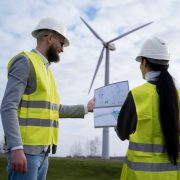The world is constantly in search of more sustainable and cleaner sources of energy. With the increasing concern about climate change, it has become more important than ever to shift to renewable energy sources.
Offshore wind energy is one such promising renewable energy source that has been gaining a lot of attention in recent years. Offshore wind farms are large-scale wind power plants located offshore, typically in shallow or deep water.
These farms harness the power of the wind to generate electricity, which can then be transmitted to onshore grids.
What is Offshore Wind Job?
Offshore Wind Jobs refer to the various job opportunities that are associated with the offshore wind industry. Offshore wind is a form of renewable energy that is generated by harnessing the power of wind in large-scale wind power plants located offshore, typically in shallow or deep water.
The offshore wind industry involves the design, construction, operation, and maintenance of these wind farms, which require specialized skills and training.
Offshore Wind Jobs can be divided into various sectors, including engineering and design, construction, operations and maintenance, logistics and supply chain, research and development, environmental monitoring and management, finance, legal, and public relations.
Each of these sectors offers different job opportunities that require different skill sets and levels of education.
Job Opportunities
-
Engineering and Design:
The engineering and design sector is one of the most important areas in the offshore wind industry. Engineers and designers are responsible for developing the wind turbines, the foundation structures, and the electrical systems needed for offshore wind farms.
This sector includes various job roles such as design engineers, structural engineers, electrical engineers, and project managers.
-
Construction:
The construction sector is another significant area in the Offshore Wind Jobs industry. Construction workers are responsible for building offshore wind farms, which involves the installation of the foundation structures, the wind turbines, and the electrical systems.
The construction sector includes various job roles such as welders, crane operators, electricians, and project managers. The construction workers must work in harsh offshore environments, which require specialized skills and training.
-
Operations and Maintenance:
The operations and maintenance sector is responsible for the day-to-day running of Offshore Wind Jobs. This sector includes various job roles such as technicians, operators, and maintenance engineers.
These workers are responsible for monitoring the wind turbines, ensuring their proper functioning, and carrying out maintenance and repair work when necessary.
-
Logistics and Supply Chain:
The logistics and supply chain sector is responsible for the transportation and delivery of materials and equipment required for offshore wind farms. This sector includes various job roles such as logistics coordinators, supply chain managers, and shipping agents.
The workers in this sector must ensure that the materials and equipment are delivered to the offshore wind farms on time and in good condition.
-
Research and Development:
The research and development sector is responsible for developing new technologies and innovations to improve the efficiency and reliability of offshore wind farms. This sector includes various job roles such as researchers, scientists, and engineers.
The workers in this sector research new materials, technologies, and methods that can be used in the offshore wind industry.
-
Health and Safety Managers:
Offshore wind farms are complex structures that require strict adherence to safety regulations. Health and safety managers are responsible for ensuring that all safety procedures are followed during the design, construction, and operation of offshore wind farms.
Also Read: Unlocking The Benefits Of Power Purchase Agreement Jobs
-
Data Analysts:
Offshore Wind Jobs farms generate a significant amount of data that needs to be analyzed to optimize performance and identify potential issues. For the purpose of supporting decision-making, data analysts are in charge of gathering, analyzing, and interpreting data.
-
Turbine Technicians:
Turbine technicians are responsible for the maintenance and repair of wind turbines on offshore wind farms. They are skilled in diagnosing and fixing problems with the turbines to ensure that they operate efficiently.
-
Quality Control Inspectors:
Quality control inspectors are responsible for ensuring that all equipment and materials used in the construction and operation of offshore wind farms meet the required standards. They inspect and test equipment and materials to ensure they meet the necessary specifications.
-
Marine Operations Managers:
Marine operations managers are responsible for the safe and efficient transport of personnel and equipment to and from offshore wind farms. They coordinate vessel schedules, manage crews, and ensure compliance with safety regulations.
-
Cable Installation Technicians:
Cable installation technicians are responsible for the installation and maintenance of power cables that connect offshore wind turbines to onshore power grids. They have specialized skills in cable laying and maintenance.
-
Blade Inspectors:
Blade inspectors are responsible for inspecting wind turbine blades for signs of wear and tear. They use specialized equipment to check the condition of the blades and determine whether they need to be repaired or replaced.
Conclusion
The Offshore Wind Jobs industry has the potential to create numerous job opportunities in various sectors. The job opportunities in this industry range from engineering and construction to operations and maintenance, logistics, and supply chain, and research and development.
The offshore wind industry’s growth will have a positive impact on local economies, creating job opportunities and promoting economic development.
Also Read: A Day in the Life of a Transmission & Distribution Worker



















Comments